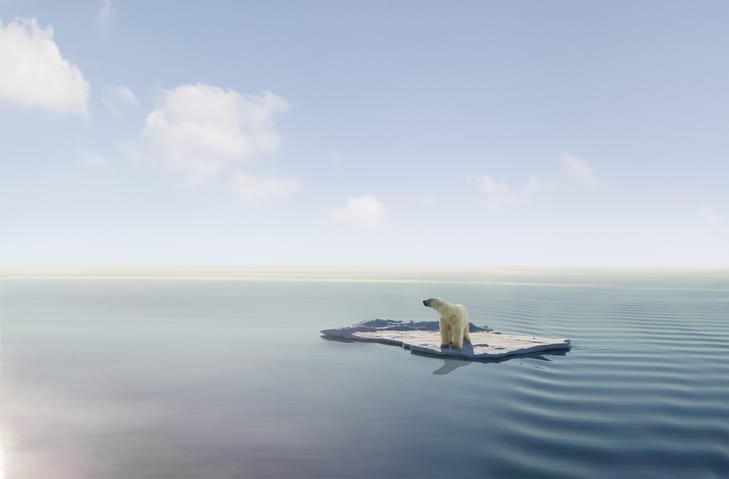No part of the world will be spared from the impacts of climate change as oceans warm and ice sheets and glaciers melt, causing rapid sea-level rise that could affect one billion people by 2050.
A new UN report from the Intergovernmental Panel on Climate Change (IPCC) makes it clear that changes will continue and be irreversible even if the climate stabilises.
It highlights the need for governments to urgently scale up and accelerate efforts to address the climate emergency and protect the world’s oceans.
‘We must listen to the science’
The IPCC’s special report on the Ocean and Cryosphere, released yesterday (25 September), is drawn from almost 7,000 papers by over 100 leading climate scientists. It represents the most comprehensive assessment to date of the severity of climate impacts on our oceans and the cryosphere.
Accelerating changes in the oceans and cryosphere – areas of the Earth covered in snow and ice – is one of the most dramatic consequences of the climate crisis.
We can manage the worst risks by sharply cutting emissions, which will give people and nature more time to adapt. Protecting and restoring marine ecosystems, for example, is one of the most powerful and cost-effective ways to combat the devastating effects of climate change.
‘The Arctic is melting at record speed, and so are our chances of fighting the climate crisis. The oceans are under threat, with ecosystems such as coral reefs and global fisheries at risk of extinction. We must listen to the science, which tells us time and again what the people on the streets are demanding: that we need a radical response from our leaders, and we need it now. The next EU Commission President wants a climate law and this must be centred on a climate-neutral EU by 2040 and 65% emissions cuts by 2030, made in a socially fair way. There is no time to waste.’
ESTER ASIN
Director of WWF European Policy Office
1bn people at risk by 2050
The report highlights the rapidity at which the impacts to our ocean and cryosphere are likely to play out if we do not take urgent action.
Many coastal communities here in Europe and worldwide are already feeling the impact of destructive weather patterns, rising sea levels, depletion of coral reefs and mangroves and the loss of marine resources including fisheries.
By 2050, as sea levels rise and fish stocks shift due to a warming ocean, one billion people who live in low-lying coastal areas will be at risk.
This could lead to large-scale migration as people avoid flooding and follow the fish they depend on. Some ecosystems, like those supported by coral reefs and polar sea ice, stand a very real risk of completely disappearing.
The IPCC report follows Monday’s Climate Action Summit in New York City, where the world’s biggest emitters failed to rally to the UN Secretary-General’s call to bring ambitious, concrete plans to further cut their emissions.
‘World leaders at the UNSG Climate Action Summit this week pretended to care, but unless words translate into more ambitious commitments to address the climate emergency and forge a strong Global Ocean Treaty, they are failing the millions of climate strikers around the world who came out onto the streets demanding radical change.
‘The IPCC report is another wake-up call for those governments who continue to sleepwalk through the climate crisis. The decisions that world leaders choose to make in the next few years will have profound consequences for the future of mankind in the coming centuries.’
CHRIS THORNE
Oceans campaigner, Greenpeace UK
 Play Video about This Rock Might Just Save The World
Play Video about This Rock Might Just Save The World Play Video about Play 2 hours of rock
Play Video about Play 2 hours of rock Play Video about Play 2 hours of brook
Play Video about Play 2 hours of brook Play Video about Play 2 hours of sheep
Play Video about Play 2 hours of sheep











































